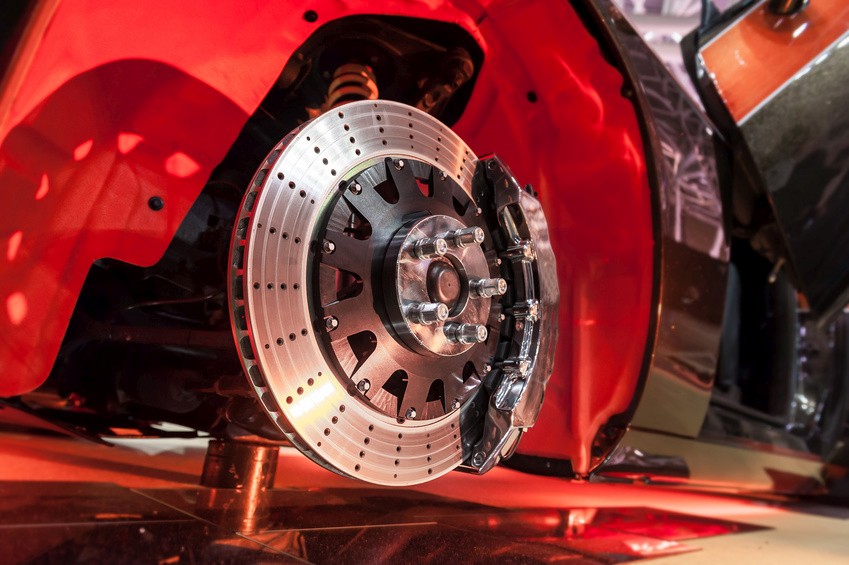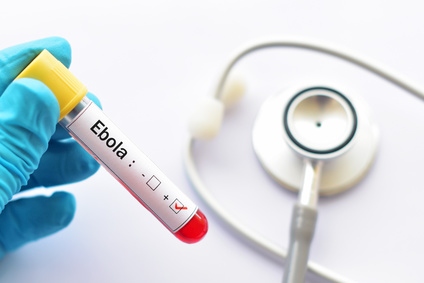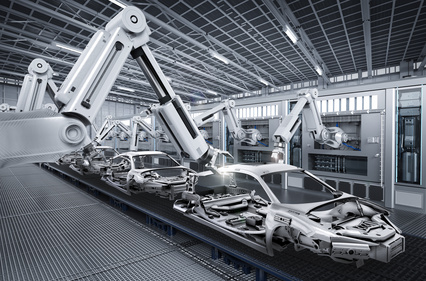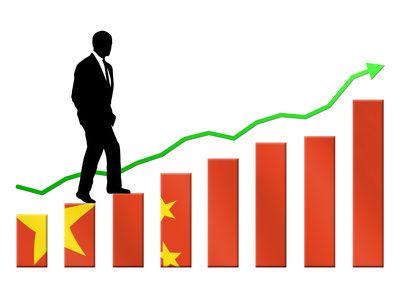Hyundai Starts Recall Action for Brake Hoses in China
Hyundai Motor (China) Investment Co., Ltd. has initiated a recall for 29 models of its Kia brand. The company informed the General Administration of Quality Supervision, Inspection and Quarantine (AQSIQ) that it had discovered defects in components on vehicles imported between March 13 and 14, 2017.

Due to manufacturing reasons, the vacuum hose of affected vehicles may start to contract, causing the brake pedal to become stiff and the braking distance to increase posing a serious risk in brake reliability.
Brake hose function is essential for vehicle safety. This is the reason that brake hoses are listed in the official catalog of CCC mandatory products and are subject to CCC certification in China. All regulations for the certification process of brake hoses are defined in the CNCA Implementation Rules number CNCA-C11-06: 2014.
Product tests are a mandatory part of the CCC Certification. The required tests can be found in the corresponding Chinese GB-standards. Depending on the model and intended use, different standards may apply here. The most common brake hose standard is GB 16897-2010 (Brake Hose-Structure, Performance and Test Methods).
If you have questions regarding the CCC regulations for brake hoses please do not hesitate to contact us. We offer full English translations of relevant standards and Implementation Rules. We also offer CCC checks for your products as well as support in answering questions regarding the planned CCC certification.
For more information about CCC certification in general, the process, and the associated costs, please visit our website and our News Section where you will find current updates twice a week.
Please do not hesitate to contact us for further details and consultation. You can contact us via e-mail, or call us (UK: +44 2071931135, Rest of Europe: +49 69 2713769150, US: +1 773 654-2673).
You can also check out our free CCC-Brochure, which can be downloaded right here as a PDF file or you consult our book (in English) “A Brief Guide to CCC: China Compulsory Certification”, which can be found directly here on Amazon.
Ebola vaccine wins approval from China Food and Drug Administration
According to the official Chinese news agency Xinhua, medical company, Tianjin CanSino Biotechnology is investing around 2 billion yuan to build a major medical facility in Tianjin to produce a revolutionary Ebola vaccine.
Notably, this makes China the third country, along with the USA and Russia, with vaccines ready to combat Ebola.
The vaccine, which was developed in conjunction with the Chinese military and was approved by the China Food and Drug Administration (CFDA), who are responsible for food safety, drugs, medical devices and cosmetics, has been developed as a response to the West African Ebola Epidemic that tragically led to the death of around 11,000 people.

Tianjin CanSino Biotechnology started trials last year and intend on having the new facility up and running by 2018 and hope it will challenge current global Ebola vaccination leaders Merck and NewLink Genetics. Though a production date has yet to be set.
Currently Merck and NewLink Genetics vaccine comes in liquid form, Tianjin CanSino Biotechnology will be available in powder form, which the firm claim will be a far better solution because it can be more easily transported and used in harsher tropical climates.
Please do not hesitate to contact us for further details and consultation. You can contact us via e-mail, or call us (UK: +44 2071931135, Rest of Europe: +49 69 2713769150, US: +1 773 654-2673).
New Regulations for Voluntary CQC Mark Certification of Warning Triangles for Vehicles
Warning triangles are currently not subject to CCC certification in China. Since 2010, however, it is possibly to apply for a so-called voluntary CQC Mark Certification. Getting this certification for your products has many advantages for manufacturers: The certification not only proves that your products comply with Chinese standards, thus granting you greater competitiveness in the Chinese market. It also minimizes customs issues considerably. In the event of an unexpected change of the regulations, such as the inclusion of warning triangles in the catalog of CCC mandatory products, it requires relatively little effort and time to transform the CQC into a CCC certificate.

The authority in charge for the certification of warning triangles is the China Quality Certification Center (CQC). In 2017, it has been the first time that CQC adjusted the relevant implementation rules for warning triangles. The new version has the number CQC16-429991-2017 and is already valid. Important changes of the rules are, amongst others, new methods for product grading and stricter rules for production control.
Product tests are a mandatory part of the CCC and CQC certification. The regulations for these tests are specified in the GB-standards, the Chinese national regulations. In this regard there have been no changes to the current regulation. For the time being, product tests of warning triangles will continue to be carried out according to GB 19151-2003 (Warning triangles for motor vehicle).
If you have questions regarding the new regulations and their impact on your products, please do not hesitate to contact us. We offer full English translations of relevant standards and implementation rules, CCC checks for your products as well as support in answering questions regarding the planned CCC certification.
For more information about CCC certification in general, the process, and the associated costs, please visit our website and our News Section where you will find current updates twice a week.
Please do not hesitate to contact us for further details and consultation. You can contact us via e-mail, or call us (UK: +44 2071931135, Rest of Europe: +49 69 2713769150, US: +1 773 654-2673).
You can also check out our free CCC-Brochure, which can be downloaded right here as a PDF file or you consult our book (in English) “A Brief Guide to CCC: China Compulsory Certification”, which can be found directly here on Amazon.
CCAP Implementation Rule and Further Information for Motorcycle Helmets has been Published
On November 10, 2017 the Chinese certification authority CCAP which is responsible for CCC certification of automotive products published the new detailed implementation rules CCAP-C11-15:2017 for motorcycle helmets. Chinese manufacturers of motorcycle helmets must adhere to following information:
- Manufacturers with a production license of AQSIQ for motorcycle helmets need to apply for a CCC certification in order to get the production license converted to a CCC certificate. Within a period of 3 to 6 months after receiving the new CCC certificate, a factory inspection will be conducted by Chinese authorities. Test reports need to be prepared for the audit. In addition, Random Sample Tests may be requested.
- Starting from November 1, 2017 all manufacturers of motorcycle helmets must apply for CCC for their products according to the new implementation rule CCAP-C11-15:2017. The CCC certificate needs be obtained prior to the export to China. Motorcycle helmets which are not CCC certified are not allowed to be imported or sold to China from November 1, 2017 on.

The implementation rules consist of guidelines for the certification of specific product categories. The new regulations for motorcycle helmets are included in CNCA-C11-15:2017.
Product tests are a mandatory part of the CCC certification. The regulation for these tests are specified in the GB-standards, the Chinese national regulations. GB 811-2010 regulates the basic structure of motorcycle helmets, technical requirements, test procedures and rules as well as labels.
If you have questions regarding the new regulations and their impact on your products, please do not hesitate to contact us. We offer full English translations of relevant standards and implementation rules, CCC checks for your products as well as support in answering questions regarding the planned CCC certification.
For more information about CCC certification in general, the process, and the associated costs, please visit our website and our News Section where you will find current updates twice a week.
Please do not hesitate to contact us for further details and consultation. You can contact us via e-mail, or call us (UK: +44 2071931135, Rest of Europe: +49 69 2713769150, US: +1 773 654-2673).
You can also check out our free CCC-Brochure, which can be downloaded right here as a PDF file or you consult our book (in English) “A Brief Guide to CCC: China Compulsory Certification”, which can be found directly here on Amazon.
Mobile phones need to pass major regulatory approvals in China to enter the Chinese market
The Ministry of Industry and Information Technology (MIIT) has released a statement that they have gained reassurances from Apple that three potentially invasive background services are merely diagnostic tools that won’t be used for malicious purposes. This is despite reports which suggested that there was some risk of personal information being leaked.
The guarantee, which was submitted by Apple to the MIIT, claimed that Apple would not ‘interfere’ with any customer’s confidential information, without the express permission from the user. For further reassurance purposes, Apple has even taken steps to enhance their security in an effort to make it even more difficult for anybody to use these tools in a malicious manner.
These actions, along with the reassurances from Apple mean that that four variations of the iPhone have passed CCC certification, which has also aided Apple in gaining a license from the State Radio Regulation of China so that the handsets could be sold.

For more information on how CCC certification may affect your company, or for more information about CCC certification in general, the process and the associated costs, please visit our website and our News Section where you will find current updates twice a week.
Please do not hesitate to contact us for further details and consultation. You can contact us via email, or call us (UK: +44 2071931135, Rest of Europe: +49 69 2713769150, US: +1 773 654-2673).
You can also check out our free CCC-Brochure, which can be downloaded right here as a PDF file, or you can consult our English textbook “A Brief Guide to CCC: China Compulsory Certification”, which can be found directly here on Amazon.
Tesla will open a manufacturing plant in China
Tesla has struck a major deal with China. According to various reports, Tesla will soon begin construction of its first electric car plant in China.
The new manufacturing plant will be set up in Shanghai’s free-trade zone. This is highly significant, because it would allow Tesla to wholly own the factory rather than going into a joint partnership with a Chinese manufacturer, which is a standard condition outside the free-trade zone.
Since the factory is in the free-trade zone, the deal would also mean that Tesla would be exempt from the kind of technology sharing clauses that have typically deterred some other foreign investors.
However, whilst the free-trading zone would help in reducing Tesla’s production costs, Tesla would still be subject to a 25% import tariff. Though it would still likely boost Tesla’s sales in China, where Tesla was estimated to have sold $1 Billion worth of cars in China in 2016. One way Tesla could get around this tax is to offer up some kind of technology-sharing clause.
The deal, which Tesla has been actively pursuing for a while now, is thought to come into focus in June 2018 and even with a 25% tax Tesla would still be able to expand and increase its brand and global market share.

However, there does appear to be space for negotiation on this tax. In March, the European Union Chamber of Commerce lodged a complaint with regards to China’s joint-ownership policy, claiming it is far too insular. The fact that Tesla is unequivocally seen as the world’s most popular and innovative Electric car manufacturer could place political pressure on the Chinese government to alter its policies as a means of trying to truly realize its goals of becoming an electric-only vehicle manufacturer.
For more information on how CCC certification may affect your company, or for more information about CCC certification in general, the process and the associated costs, please visit our website and our News Section where you will find current updates twice a week.
Please do not hesitate to contact us for further details and consultation. You can contact us via email, or call us (UK: +44 2071931135, Rest of Europe: +49 69 2713769150, US: +1 773 654-2673).
You can also check out our free CCC-Brochure, which can be downloaded right here as a PDF file, or you can consult our English textbook “A Brief Guide to CCC: China Compulsory Certification”, which can be found directly here on Amazon.
The Numbers on China’s Progress in Certification Released
At the 18th National Congress of the Communist Party of China held in 2012 the Central Committee announced to place product quality in a more prominent position and increase the attention given towards certification and accreditation work. China’s most important certification and accreditation administration CNCA has been following the progress over the years and recently released information on the progress.
There are 387 certification authorities in China who have certified approximately 1.8 million products and more than 600.000 organizations worldwide. In terms of the amount of product certifications, China has been leading the world for many years now. The product categories that require CCC have been increasing continuously as well. China has established stricter requirements towards product quality, environmental standards, energy and water saving and product manufacturing.
According to a survey of the United Nations Industrial Development Organization (UNIDO), the effectiveness of quality management systems within the ISO9001 certified companies has been improved significantly. There has also been an increase of product quality as shown by the test sample passing rates. In 2016, 90.3% of test samples passed, this compared to 78.5% passing rate shown in 2011. Another survey in the Southern Guangdong province revealed, that the sample test passing rate of certified companies is in average 10% higher than the ones of non-certified companies. Considering these numbers, the Congress’ aim of promoting social development in accordance with economic growth is proving to be successful.

For more information on how CCC Certification may affect your company, or for more information regarding CCC Certification, including the process and the associated costs, please visit our website and our News Section where you will find current updates twice a week.
Please do not hesitate to contact us for further details and consultation. You can contact us via Email, or call us (UK: +44 2071931135, Rest of Europe: +49 69 2713769150, US: +1 773 654-2673).
You can also check out our free CCC-Brochure, which can be downloaded right here as a PDF file, or you can consult our English textbook “A Brief Guide to CCC: China Compulsory Certification”, which can be found directly here on Amazon.
CQC Attended the 8th American-Chinese Energy Efficiency Forum
On October 13, 2017 the 8th American-Chinese Energy Efficiency Forum (EDF) took place in Denver, Colorado. The annual forum was established as an information exchange between the US and China in the area of technological advances of energy efficiencies. The event is done in cooperation with the US Department of Energy’s Energy Efficiency and Renewable Energy Bureau and the Chinese National Development and Reform Commission (NDRC). Participants included leading stakeholders from politics, business and nonprofit organizations. The discussions and lectures dealt with the topics of building and industrial efficiency, energy performance contracting, energy efficiency standards, energy management and more.
The director of the CQC (China Quality Certification Center), Mr. Lu Mei, also attended the forum. He signed a memorandum of understanding (MOU) on enhanced cooperation in the areas of energy management and increasing energy efficiency with the Northwest Pacific National Laboratory of the United States, which is considered an important step of both countries to cooperate in these areas. Common objectives include promoting and developing control mechanisms and relevant certifications, as well as establishing new technologies and common standards.
In order to promote energy efficiency in China, the CEL label was implemented in 2005 and now covers 33 energy-using products from 12 product groups in 5 different categories, including household appliances, industrial equipment, commercial equipment, office lighting products and electronic office products.
New Detailed CCAP Implementation Rules for Motor Vehicles
On September 30, 2017 the CCAP published new Detailed Implementation Rules for the CCC certification of motor vehicles. The implementation rule CCAP-C11-01-2014/A1 is the revised version of CCAP-C11-01-2014 that was published in 2014.
According to CCAP the revision of the Implementation Rules will further improve the standardization of the mandatory CCC certification. In addition to constantly striving to raise the quality of the certification process, the update will also serve to extend the certification scope to new types of vehicles.
Due to the rapid growth and development of electric vehicles over the past two years, the standards have permanently been adapted to the ongoing development and extended to meet the needs of the new types of vehicles. New types of vehicles do not only refer to pure electric vehicles but also (plug-in) hybrid vehicles.
A significant change in the Implementing Rules is characterized by the inclusion of many of the new standards. The new standards address the measurement procedures and limits as well as safety regulations of available battery technologies, and fuel cells. Further standards have been included dealing with the issue of fueling up on the respective energy carrier. One goal, among others, is to standardize the communication protocol between various charging systems.
Products that are already certified and affected by the revised Implementation Rules may need to be re-tested, depending on the specific product and when they were certified.
Another change was that there is a new standard for low import volumes (Single CCC) which has been revised so that no factory inspection for the car manufacturer is required. For low volume imports only testing will need to be done.

In their announcement, CCAP repeatedly emphasizes the mandatory nature of the revised implementing provision. Firms planning to import their vehicles and components into China are required to certify them according to the new Implementing Rules.
If you would like to be kept up to date with news regarding CCC certification, you are welcome to visit the news section on our website.
If you have any questions regarding the revised implementation rules, please do not hesitate to contact us directly. Please send us an e-mail or call us at + 49-69-2713769150.
General information about CCC, the process and associated costs can be found on our website.
Detailed information on CCC can also be found in our free brochure “CCC Made Easy“ which you can download here as a PDF file and in our English book “A Brief Guide to CCC: China Compulsory Certification,“ which you can order here directly on Amazon.



